Being Truly Grateful
 By 7 a.m. a year ago today I’d already been to two grocery stores buying the perfect turkey and other Thanksgiving fixings and had the turkey in the oven cooking two days early because I was afraid my little toy poodle, Ebie, would die without having his favorite food one last time.
By 7 a.m. a year ago today I’d already been to two grocery stores buying the perfect turkey and other Thanksgiving fixings and had the turkey in the oven cooking two days early because I was afraid my little toy poodle, Ebie, would die without having his favorite food one last time.
I’ve wanted to write about Ebie in this blog so many times. I’ve sat down with ideas, made notes, chosen pictures. But I’ve always aborted the process because I just haven’t been able to fully face the fear that I wouldn’t have the courage, insight, and sensitivity to make his story as profound as it should be. No doubt I’ll fail today, but I’m writing anyway.
During my lifetime I’ve lost my mother, lost a career, lost my idea of self, and had to rebuild my entire existence. But losing Ebie was the worst of it.
He welcomed me every day—first thing in the morning and whenever throughout the day he hadn’t seen me for two minutes—as though he thought of me as a special gift. Like I knew all the answers and could give him everything. Like I saved him.
The reality is that he saved me. As someone who’s suffered depression for years, I often came home from work crying and had otherwise difficult days. Ebie always met me with his happy little face, showered me with loving kisses, licked the salty tears off my cheeks, and grabbed his gingerbread man to start a romping game to take my mind off my troubles and make it all okay.
Ebie endured serious illnesses for seven years—the entire latter half of his life. Epilepsy. Immune-mediated hemolytic anemia—a horrible condition that shifts a dog’s immune system into overdrive and destroys life-sustaining red blood cells. And then came diabetes. Ebie eventually went blind and lapsed into dementia. Still, never did he let his problems shadow his optimism.
He took his twice-daily medications, including insulin injections, as though they were simply momentary impediments, and then he kept frolicking forward.
Perhaps part of his joy was that he didn’t know how sick he was. He didn’t know that he could be fine upon rising in the morning and dead from an immune problem by noon. He didn’t know that his slowly darkening world would one day envelope him in total blackness, as we knew awaited him.
Yet, even during his last week, though he repeatedly struggled with blood glucose readings low enough to cause seizures and even kill, didn’t have the stomach to eat, had to venture outside for potty in single-digit temperatures when he wanted to stay tucked in a warm bed with me, Ebie didn’t lose his joie de vivre. Or maybe he didn’t want to appear to us that he lost his zest for living. Maybe he went on just because he thought I wanted him to. He knew how much I needed him.
I often think of how difficult it was for Ebie to die. Did he think he was disappointing me?
When he fell into the final deep sleep, he took my heart with him, along with all the hope and brightness I think I’ll ever have.
Now, when I close my eyes and go back to even those sad last days when the long good-bye had started, I can feel his furry little cheek on mine as I hold him close and whisper “Mommy loves Ebie” over and over again. When I open my eyes and realize that furry little cheek is gone forever, it’s like a million knives.
When Ebie ate his last bites of turkey that morning a year ago today, he only had twenty-three more days to live.
This year we’re not making a turkey at home for Thanksgiving. We’ve thought about making barbecued ribs, a pot roast, even coneys. But what seems the best is getting out of the house and escaping the memories. I just can’t stand the thought of not seeing Ebie sitting in front of the oven waiting for the delectable treat cooking inside.
Then again maybe we should stay home and let the memories come, even the most painful ones, because this year even more than any other I feel so grateful for having known and loved Ebie. For all the years of fun and laughter he bestowed upon me. For all the times he sat by me sharing Fritos. For having the exquisite joy of being able to feel his warm little body beside me as I slept. For hearing his happy bark when he heard the garage door and knew I was coming home. For the way he lived. For the way he helped me live.




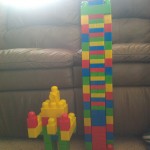
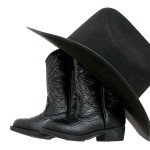

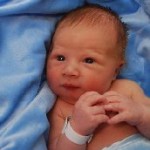
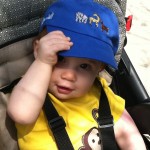
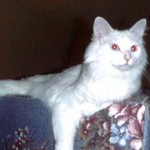

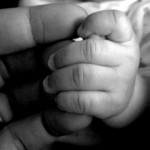
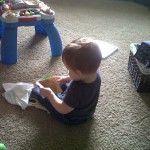

> > Follow Lisa!- Facebook
- Twitter